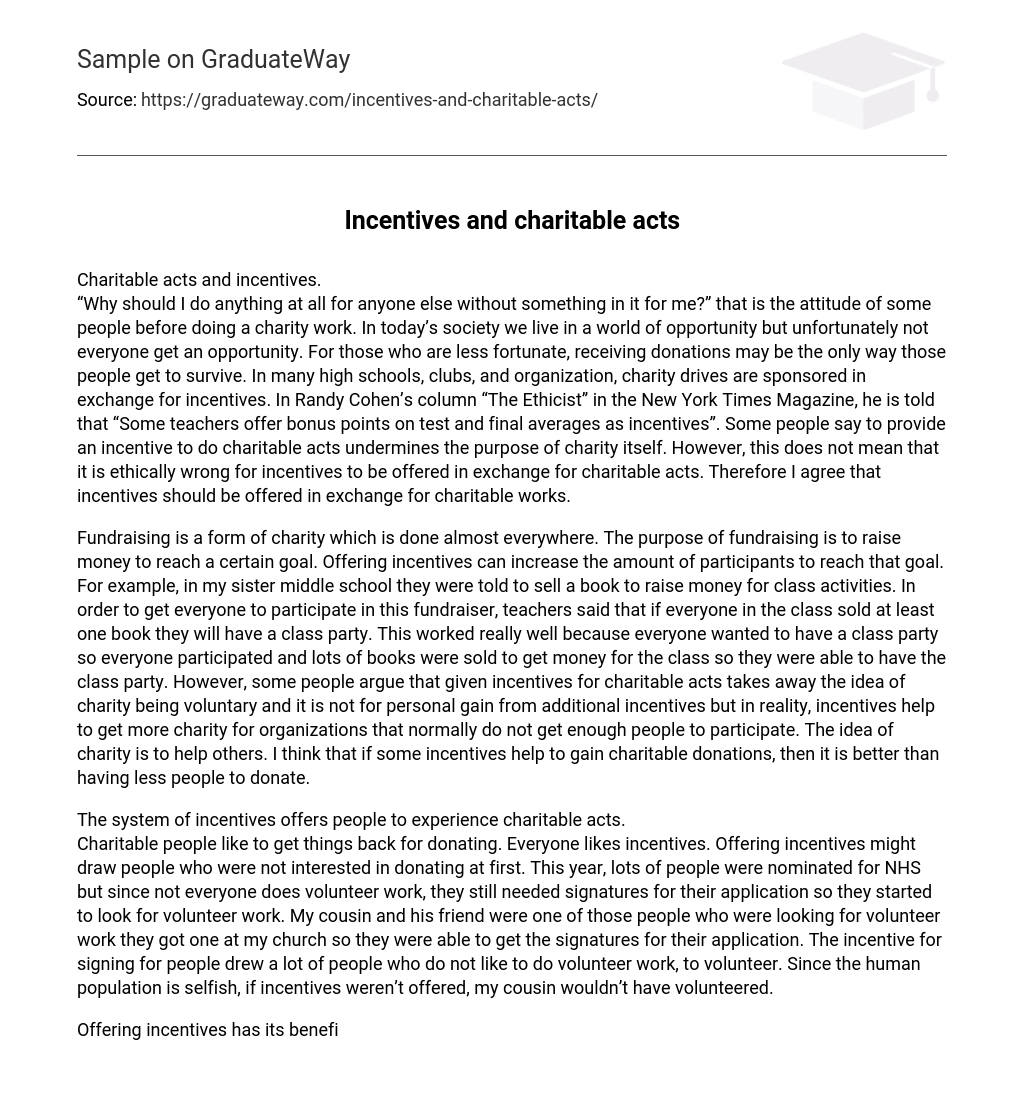Charitable acts and incentives.
“Why should I do anything at all for anyone else without something in it for me?” that is the attitude of some people before doing a charity work. In today’s society we live in a world of opportunity but unfortunately not everyone get an opportunity. For those who are less fortunate, receiving donations may be the only way those people get to survive. In many high schools, clubs, and organization, charity drives are sponsored in exchange for incentives. In Randy Cohen’s column “The Ethicist” in the New York Times Magazine, he is told that “Some teachers offer bonus points on test and final averages as incentives”. Some people say to provide an incentive to do charitable acts undermines the purpose of charity itself. However, this does not mean that it is ethically wrong for incentives to be offered in exchange for charitable acts. Therefore I agree that incentives should be offered in exchange for charitable works.
Fundraising is a form of charity which is done almost everywhere. The purpose of fundraising is to raise money to reach a certain goal. Offering incentives can increase the amount of participants to reach that goal. For example, in my sister middle school they were told to sell a book to raise money for class activities. In order to get everyone to participate in this fundraiser, teachers said that if everyone in the class sold at least one book they will have a class party. This worked really well because everyone wanted to have a class party so everyone participated and lots of books were sold to get money for the class so they were able to have the class party. However, some people argue that given incentives for charitable acts takes away the idea of charity being voluntary and it is not for personal gain from additional incentives but in reality, incentives help to get more charity for organizations that normally do not get enough people to participate. The idea of charity is to help others. I think that if some incentives help to gain charitable donations, then it is better than having less people to donate.
The system of incentives offers people to experience charitable acts.
Charitable people like to get things back for donating. Everyone likes incentives. Offering incentives might draw people who were not interested in donating at first. This year, lots of people were nominated for NHS but since not everyone does volunteer work, they still needed signatures for their application so they started to look for volunteer work. My cousin and his friend were one of those people who were looking for volunteer work they got one at my church so they were able to get the signatures for their application. The incentive for signing for people drew a lot of people who do not like to do volunteer work, to volunteer. Since the human population is selfish, if incentives weren’t offered, my cousin wouldn’t have volunteered.
Offering incentives has its benefit and should somewhat be limited to make it fair for everybody. In Cohen’s question that he was asked in “The Ethicist” mentions that bonus points were used on test as incentives just because people donated more. The performance of each student varies and therefore they shouldn’t be given high grades because they donated more. Incentives should be offered so that the system is fair for everyone. Last year my school had a penny war. It was a completion between the four classes and whichever class won was allowed to have a pizza party, this was fair because it made everyone participate and students were not given higher grades for donating more. Therefore I think incentives can be offered for charity work.





